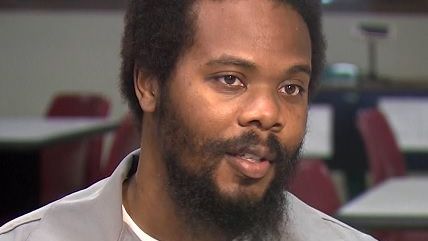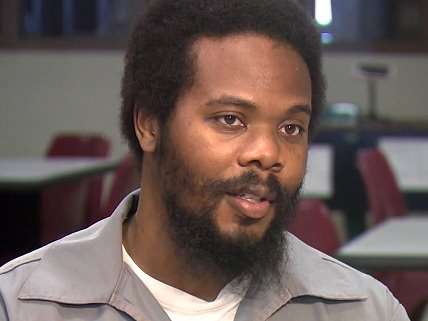Prosecutor Wants to Apologize to Wrongly Accused Man, Cops Insist the System Worked
Cornealious Anderson was arrested and charged even though he had dozens of alibi. The prosecutor's investigation found problems in the police investigation.


In November police in St. Louis were looking for a black male wearing Nike sneakers and a hoodie who was accused of snatching a purse at a local White Castle. Thirty minutes later a patrol officer stopped and arrested Cornealious Anderson on his way to his car from a birthday party. Anderson, black, was wearing a leather jacket and boots and insisted he had dozens of alibis at the birthday party he had left.
Police didn't check on Anderson's alibi. Instead they took him to the scene of the crime, where they say the victim and two witnesses identified Anderson on the spot, later doing so in a line-up. Anderson's lawyer criticized police for bringing Anderson to the scene of the crime, saying it was "one of the most suggestive things" police could've done. The lawyer also claims police put Anderson in a line-up full of other people that looked nothing like him.
After the identification, police said they didn't feel a need to follow upon Anderson's alibi claim because there was "no doubt" in their mind about the identification, according to a police officer who spoke with The St. Louis Post-Dispatch.
The charges against Anderson were dropped when the prosecutor's investigation revealed problems with the police investigation, which is why the prosecutor wants to apologize. Not the police department though, as The Post-Dispatch reports:
"The system worked the way it was designed to work and at the end he was released without going to trial," Caruso said. "In this case their investigation uncovered some things that ours didn't—and that's part of the system—and based on that information, the charges were dropped."…
"The officers acted in good faith," Caruso emphasized, noting that police can hold someone only a day without charges, and that they met the probable cause standard needed for charges.
He said the department plans to turn Anderson's case into a "teachable moment."
But he would not go as far as to say police erred. "Do I feel the wrong person was arrested? I can't answer that," Caruso said. "I can just say the system worked at the end of the day."
"The system" can deprive an innocent person of their freedom and those paid to uphold it will say it worked because eventually that person was freed. In the meantime, cops can kill on duty without even the worry of temporarily losing their paychecks as a consequence, because that's the kind of "system" they've arranged for themselves. While the prosecutor wants to apologize to Anderson and the police don't, the prosecutor says St. Louis' police chief told her he was taking "full accountability" for the incident. But his police department won't even cop to making a mistake, so what could "accountability" possibly mean in his mind?
The 38-year-old Anderson, incidentally, was found in April to have not served a 13-year sentence he was supposed to start in 2002 because of a clerical error. He was eventually spared having to do the time. In May a judge ordered his release from prison.
h/t Mark Sletten


Show Comments (30)